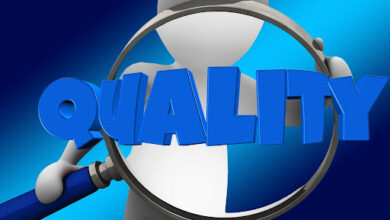The Complete and Only First Time Homebuyer Checklist You’ll Ever Need

Buying a home is one of the biggest and most important investments most people make in their lifetime.
According to the National Association of Realtors, approximately 27 percent of buyers reported they wanted to buy a home, simply because they wanted to own their own property.
If you’re a first-time homebuyer, read on for a crucial checklist you’ll need before and during the process of making such a massive purchase.
Gather Important Documents
No matter what lender you choose, you’ll need to make sure you have some important documents ready for your application. First, make sure you have a recent paystub and your last two years’ W-2 forms from your employer. Lenders want to know what kind of household income you have to determine how much home you can afford.
You’ll also want to get a hold of your last year’s tax returns. This will show the lender that you are up to date on your taxes and will help to prove your current income.
Obtain a copy of your credit report and credit score. Your credit is what lenders use to determine things like your interest rate and the loan’s terms.
If there was a gap in employment, be prepared to write and sign a letter explaining the lag. Business owners should be prepared to provide the most two recent years of tax returns, too. You’ll also need basic information like a photo ID and your current and previous addresses.
First Time Homebuyer List: Money for Downpayment
There are some loans that don’t require money for a downpayment, but most will require anywhere from five to up to 20 percent. Make sure you start saving early and that you have ample cash ready to pay for the downpayment.
Your lender will need to see your statement for your savings account to prove that you have the money available. If you don’t have the cash, it’s recommended that you get it before you begin the house hunting and loan application process.
You’ll also need money for other things like closing costs and the home inspection. Start cutting spending and reduce your debt to both improve your credit score and increase your savings.
Find a Lender
Whether you’re an experienced or a first-time homebuyer, you’ll need to choose a lender who will work with you to get approved. Start by comparing rates and requirements online so you can determine which lender meets your needs the best.
If you have an account with a credit union, they can often offer great rates and terms. If you need help, consider hiring a mortgage broker. A broker can do the shopping for you and help you figure out which lenders will give you the highest approval odds.
Talk to a local bank and find out more about their home mortgage programs. This step is very important since it determines how you’ll get approved, what your rate will be, and if you’re able to get the loan amount you need.
After you choose a lender, make sure they provide you with a pre-approval letter. You can use this letter to show sellers that you’re serious about buying their home and that you’re likely going to qualify for the mortgage.
Choose a Real Estate Agent
There are many benefits to buying vs renting a home, and you can discover more here. Once you’re ready to make the move, you’ll need an experienced real estate agent by your side.
Your Realtor knows the local real estate market and has access to the MLS system so they can find homes that are a good match for you. Make a list of must-haves including the location of the home, number of bedrooms, and other features. This list will help your agent find the right homes for you.
In addition to helping you look for a home, your real estate agent is the go-between for you and the seller. They’ll help you negotiate the contract and work with you all the way until closing day.
Start Shopping
Start attending open houses and crossing homes off your list to find the perfect home. Make sure you look at things like the location and the size to ensure that it’s exactly what you want.
When you’re ready to make an offer, it’s always a good idea to pay for a home inspection. The home inspector can identify any issues with the property which allows you to negotiate with the seller if repairs need to be made.
Once the offer is signed and accepted, it’s time to start getting ready for the closing. You’ll need to have all of your money together and schedule the day to attend the closing so you can sign the contract.
Attend the Closing
On the day of closing, you’ll need to sign a wide range of papers to seal the deal. Bring a cashier’s check for the downpayment and the closing costs.
Some closings take place at an attorney’s office, while others take place at a title company. This usually depends on the state or city where you live.
After you’ve signed all of the paperwork and transferred the money, you’ll get your keys. Now, you’re officially a first-time homeowner!
Find Your Dream Home
Keep this checklist in mind if you’re a first-time homebuyer so you can be prepared for the process. With the right lender and real estate agent by your side, you’ll find the perfect dream home for you and your family.
For more great articles about tech, business, education, and much more, be sure to visit our website today!






